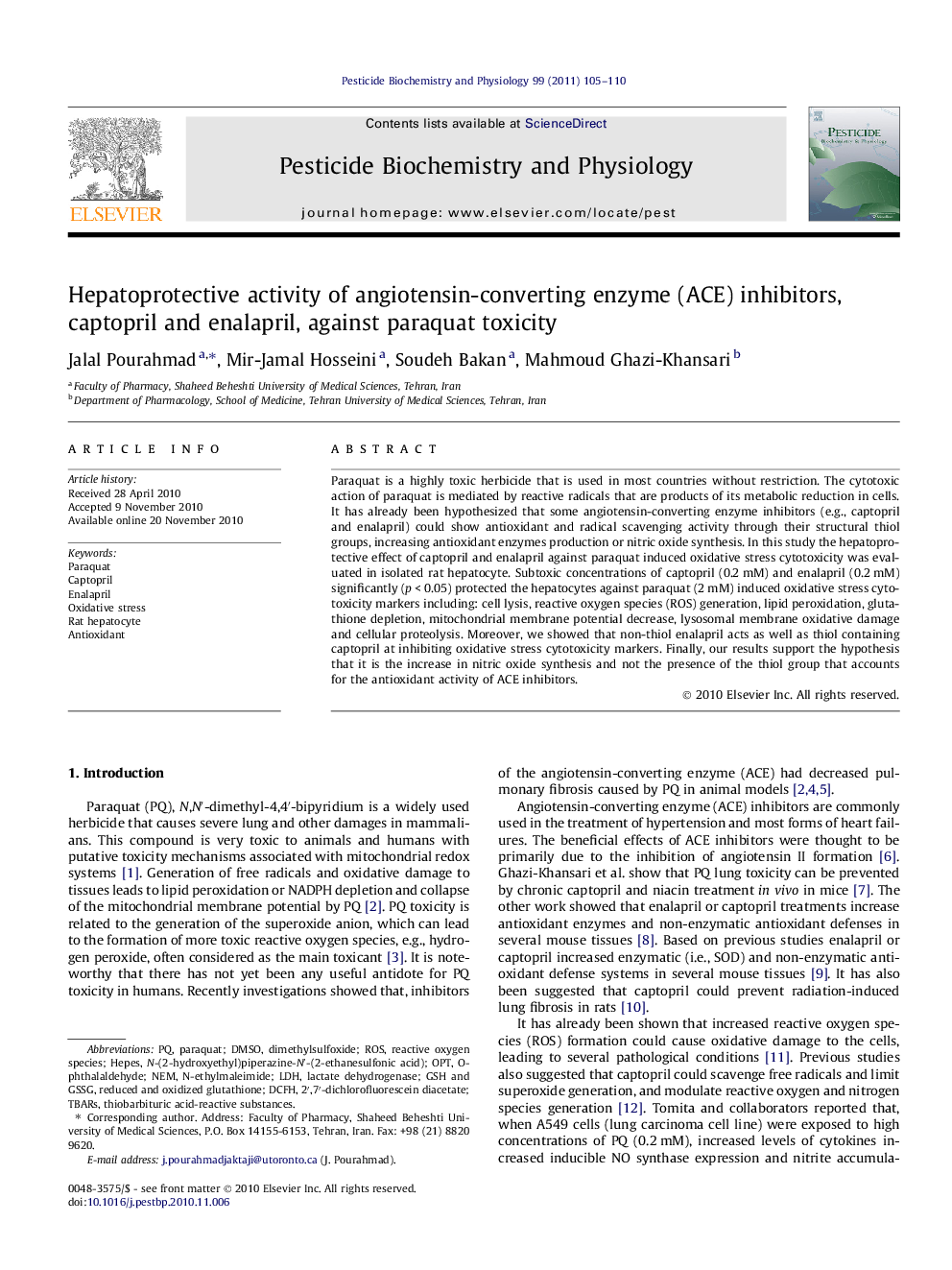| Article ID | Journal | Published Year | Pages | File Type |
|---|---|---|---|---|
| 2009962 | Pesticide Biochemistry and Physiology | 2011 | 6 Pages |
Paraquat is a highly toxic herbicide that is used in most countries without restriction. The cytotoxic action of paraquat is mediated by reactive radicals that are products of its metabolic reduction in cells. It has already been hypothesized that some angiotensin-converting enzyme inhibitors (e.g., captopril and enalapril) could show antioxidant and radical scavenging activity through their structural thiol groups, increasing antioxidant enzymes production or nitric oxide synthesis. In this study the hepatoprotective effect of captopril and enalapril against paraquat induced oxidative stress cytotoxicity was evaluated in isolated rat hepatocyte. Subtoxic concentrations of captopril (0.2 mM) and enalapril (0.2 mM) significantly (p < 0.05) protected the hepatocytes against paraquat (2 mM) induced oxidative stress cytotoxicity markers including: cell lysis, reactive oxygen species (ROS) generation, lipid peroxidation, glutathione depletion, mitochondrial membrane potential decrease, lysosomal membrane oxidative damage and cellular proteolysis. Moreover, we showed that non-thiol enalapril acts as well as thiol containing captopril at inhibiting oxidative stress cytotoxicity markers. Finally, our results support the hypothesis that it is the increase in nitric oxide synthesis and not the presence of the thiol group that accounts for the antioxidant activity of ACE inhibitors.
Graphical abstractInhibitory effect of ACE inhibitors against PQ induced oxidative stress through nitric oxide synthesis increase.Figure optionsDownload full-size imageDownload as PowerPoint slideResearch highlights► In this study hepatoprotective effect of captopril and enalapril against paraquat was evaluated. ► Captopril and enalapril protected hepatocytes against paraquat induced cytotoxicity markers. ► Non-thiol ACEi acts similar to thiol containing captopril at inhibiting oxidative stress markers. ► Increasing nitric oxide synthesis is the only justification for antioxidant activity of ACEi(s).
